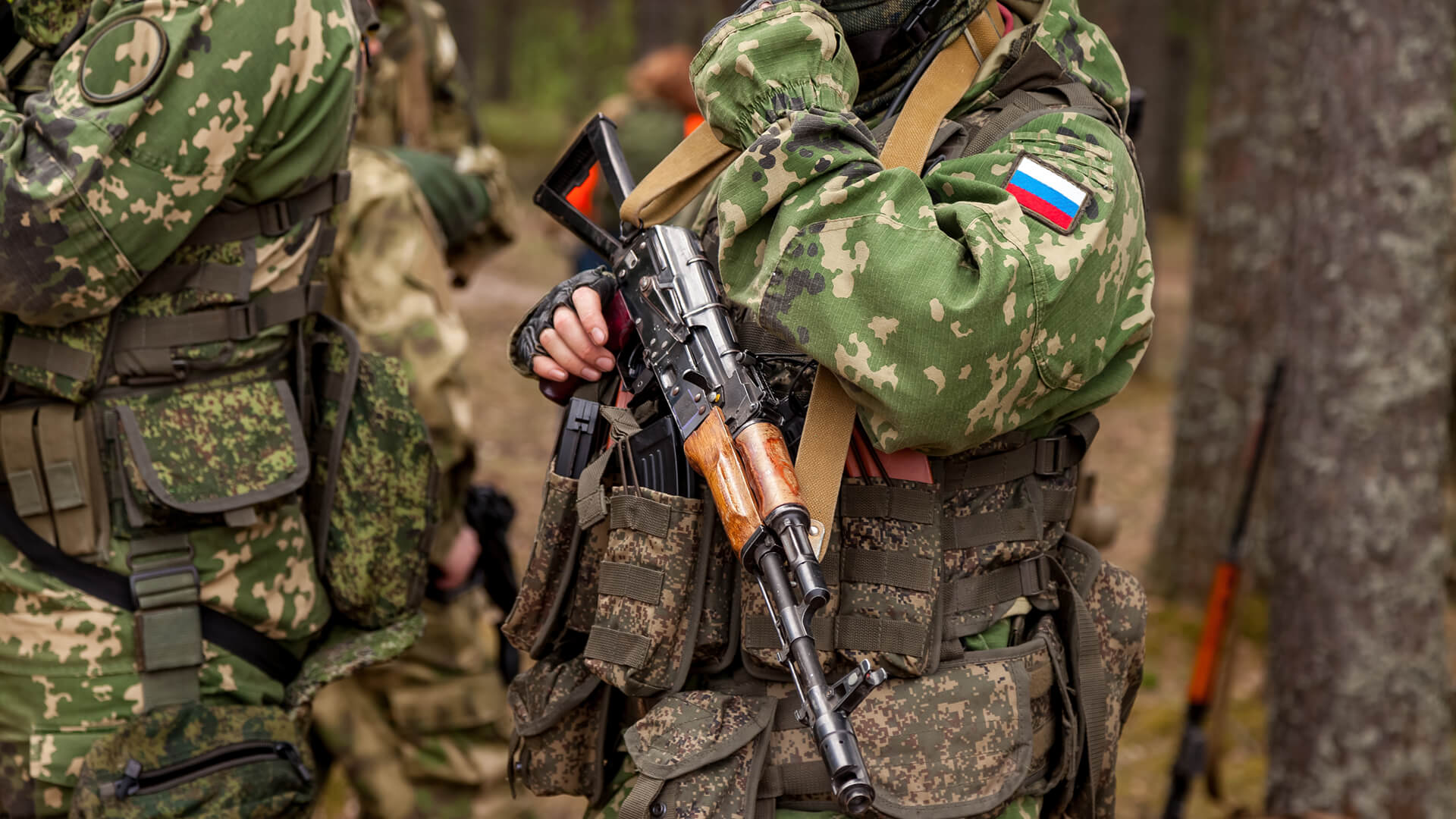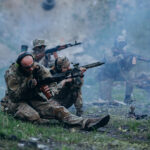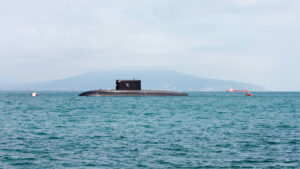For years I’ve warned that a war between Russia and Ukraine was inevitable, but why didn’t Putin just play the nuke card? As an add-on, we’ll also be touching on some new Russian alliances that could rub the US the wrong way.
The Russians are no strangers to wars and territorial expansions, so despite having nukes, they still prefer their tried and true method of occupation. This may seem foolish given their nuclear capabilities, but the Russian goal is to establish a buffer they control easily, not a zone they have to patrol wearing hazmat gear.
The Ukraine War has also brought up conversations of Russian alliances with some unsavory characters, i.e. North Korea, Iran, and China. I’m really not too worried about these alliances either. The logistics alone make them all dealbreakers.
The conversation about the American-led global order being disrupted is less about Russia’s moves and more about how the Americans decide to proceed with their global strategies.
Here at Zeihan On Geopolitics we select a single charity to sponsor. We have two criteria:
First, we look across the world and use our skill sets to identify where the needs are most acute. Second, we look for an institution with preexisting networks for both materials gathering and aid distribution. That way we know every cent of our donation is not simply going directly to where help is needed most, but our donations serve as a force multiplier for a system already in existence. Then we give what we can.
Today, our chosen charity is a group called Medshare, which provides emergency medical services to communities in need, with a very heavy emphasis on locations facing acute crises. Medshare operates right in the thick of it. Until future notice, every cent we earn from every book we sell in every format through every retailer is going to Medshare’s Ukraine fund.
And then there’s you.
Our newsletters and videologues are not only free, they will always be free. We also will never share your contact information with anyone. All we ask is that if you find one of our releases in any way useful, that you make a donation to Medshare. Over one third of Ukraine’s pre-war population has either been forced from their homes, kidnapped and shipped to Russia, or is trying to survive in occupied lands. This is our way to help who we can. Please, join us.
Transcript
You’re someone who has famously for a long time predicted and tried to warn people that, not only is Russia’s war with Ukraine inevitable, but Russian national security, national strategy, doctrine dictates that the Russians are likely to expand their war westward from Ukraine. But given this framing of this conflict or this aggression as being from a national security standpoint, why does Russia need to do this if they have such a large nuclear, arsenal?
And I guess part of it, maybe a tagalong would be, why is Russia enduring what it is in Ukraine if it has nukes, is that sort of a faster way for giving things? The, the non-UK approach has been the Russian strategy for a lot longer than we’ve had. So there’s always that little inertia thing in terms of people’s minds.
But one of the things that the Russians have discovered since 1990 is they thought they thought that they could do this on the cheap, that they could infiltrate societies, use disinformation, use plants, bribe people, and basically break the democratic processes and the strategic commitments of countries from Estonia to Bulgaria, to Azerbaijan to to take a stand. And what they’ve discovered is they’ve just pissed everyone off.
The idea was that they could get all the strategic goodies that they thought they needed without actually having to occupy the places, and that has fallen apart everywhere except for Belarus. And so the question then is, can we threaten people to not take strategic decisions that we don’t like? So the United States, we’re going to nuke you unless you give us an aircraft carrier that doesn’t fucking fly.
And that’s basically the strategy that you’re recommending here, is that we, as they threaten countries between them and the Western world in order for them to do exactly what Moscow wants. the Russians have discovered very, very clearly that the only way to make someone do what you want is to occupy yourself. And while we in the West might not see our way of life as threatening the existence of the Russian state, they obviously have a different opinion on that.
the only time the Russians have ever, ever felt secure is after World War Two, when Stalin succeeded in conquering all the buffer states and concrete, all of the access points into the Russian heartlands, and that held until 1992. And the Russians are desperate to have that back. Unfortunately for them, the only way they can have that back is to by occupying countries with a combined population of more than their own population, that’s not going to fly in those countries.
It’s not going to fly in the West. It’s not going to fly in the United States. And so we have a war. Russia’s invasion of Ukraine has pushed Moscow to seek some nontraditional, material supply, alliances or partnerships with some of the countries most antagonistic to American leadership. The role and think about North Korea. It’s, you know, in a tighter economic embrace with China.
It’s getting drones from Iran. Do we see the potential for the emergence of a Moscow led kind of NATO? And I think, you know, we’ve seen this once before. It was the, the US saw it, but, the North Korea, China, Russia, Iran, lesser Cuba into the mix, too. it’s Friday. Do we need, these I hesitate to call them powers, but there’s this assembly of, foreign.
America’s like the bad guys together, present a considerable credible, worrisome threat to, the American that global order. No. Well, I mean, I don’t think the American led world order is doing that great or is going to last that much longer. But no, I don’t think this is what’s going to tear it down. keep in mind that even at the height of the Cold War, the only Soviet ally that ever deployed troops out side of its own country was Cuba.
And that was to Angola. You never had Polish troops in Romania, Romania, troops in eastern Germany. and so even at the height of Soviet dominance, they were never able to pull this off. From a purely logistical point of view, forget political or economic. So you might have places like North Korea and China and Russia and Iran and Cuba not liking how things are going if you’re there on the world, but them deploying is a completely different situation.
In addition, keep in mind that while Russia has figured out how to deploy a small number of troops and things like Wagner, China has only ever had one deployment outside of its home country that’s in Djibouti. That barely counts. North Korea’s never done it, ever. Cuba is not nearly as powerful now as they were 30 years ago.
So the capacity just isn’t there. Much less coordination, much less the deployment capacity. Now, the dangerous the American let order are primarily in the United States from interest. And I still still still see the biggest danger to that order will be when the United States wakes up one day and realizes that the countries that are benefiting most from its presence are the countries that it is most opposed to, because without America providing global naval coverage for civilian shipping, there is no Russian energy industry.
There is no Chinese manufacturing sector, there is no Iranian trade. There’s not even anything for Cuba. And if the U.S. starts to use its navy to interfere with those flows, instead of protecting those flows, we’re in a very different world the next day. And the countries if the United States thinks of as the problems are gone the day after.
Thank you very much for your time, Peter. I enjoyed the conversation and thank you for all our subscribers and followers for your questions. please continue to send them in and I’ll look forward to having conversation like this with you again. Thank you. Take care.








